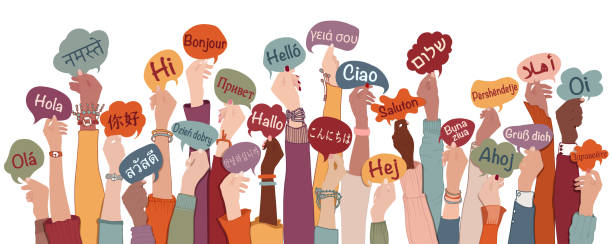Traveling is an enriching experience that allows us to see the world through the eyes of others. It gives us the chance to explore new places, meet new people, and learn about different cultures. However, with this comes the responsibility to respect the customs, traditions, and etiquette that vary across the globe. Understanding cultural norms not only enriches your travel experience but also helps you build positive connections with the people you meet along the way.
In this post, we’ll take a look at key cultural etiquettes from different regions of the world to help you navigate the rich diversity of global customs.
1. Japan: The Importance of Respect and Politeness
Japan places a high value on respect, politeness, and humility. When visiting Japan, it’s important to bow as a sign of respect—this can range from a small nod to a deeper bow, depending on the situation. Handshakes are also common but should be done with a gentle grip.
Key Etiquette Tips:
- Shoes off Indoors: Always remove your shoes when entering homes, temples, or some traditional accommodations like ryokan inns.
- Quiet Public Spaces: Keep your voice low on public transportation and in public spaces. Speaking loudly can be considered rude.
- Handling Trash: Japan is known for its cleanliness, so be sure to dispose of your trash properly. You’ll often find a lack of public trash cans, so it’s common to carry your trash with you until you find a place to dispose of it.
2. India: Understanding Social Hierarchies and Traditions
India’s cultural diversity is reflected in its wide array of customs and traditions, which can vary from region to region. However, a few general etiquette tips can help you navigate this beautiful country with respect.
Key Etiquette Tips:
- Greetings: The traditional greeting is the “namaste,” where you bring your palms together in a prayer-like position and bow your head slightly. It’s a respectful way to say hello or goodbye.
- Dress Modestly: In many parts of India, dressing modestly is important. Women especially should cover their shoulders, cleavage, and knees in religious or rural areas.
- Respect for Elders: Elders are highly revered in Indian culture, so it’s customary to greet them first and listen to their advice. Touching their feet is a sign of respect.
- Avoid the Left Hand: The left hand is considered impolite in many parts of India, so always try to use your right hand when eating, greeting, or handing over money.
3. France: Etiquette of Refinement and Politeness
France is often associated with style, sophistication, and good manners. Parisians, in particular, may be known for their chic ways, but they also value politeness and common courtesy in all social interactions.
Key Etiquette Tips:
- Greetings: A firm handshake is common among strangers, but friends and family greet each other with kisses on both cheeks (or more, depending on the region). It’s important to greet everyone with a “Bonjour” (Good day) when entering a shop or restaurant.
- Dining Etiquette: Keep your hands visible on the table (but not elbows), and refrain from starting to eat until everyone at the table is served. Do not rush your meal; French dining is all about savoring food and conversation.
- Tipping: In France, service charges are often included in restaurant bills, but leaving small change or rounding up the bill is appreciated.
4. Middle East: Hospitality and Etiquette of Generosity
In countries like the United Arab Emirates, Saudi Arabia, and Egypt, hospitality is at the heart of Middle Eastern culture. Guests are treated with great respect, and refusal of food or drink can be seen as an insult.
Key Etiquette Tips:
- Respect for Religion: The Middle East is home to various religious practices, particularly Islam. Be mindful of prayer times and dress codes—especially during the holy month of Ramadan. During Ramadan, refrain from eating or drinking in public during daylight hours as a sign of respect.
- Hospitality: If invited into a home, it’s customary to accept whatever is offered. It’s considered impolite to refuse food or drink. When offered tea or coffee, accept it, but be sure to show appreciation.
- Use of the Right Hand: As in India, the right hand is used for most actions, including eating and greeting others.
5. South Korea: Group Harmony and Respect for Authority
South Korea is a country that places importance on hierarchy, respect for elders, and group harmony. Social interactions are guided by age and status, so understanding the nuances of these relationships is key to making a positive impression.
Key Etiquette Tips:
- Greetings: A bow or a slight nod is a respectful greeting, especially towards older people. Handshakes are also common, but they should be soft, and younger people should offer their hands with both palms.
- Respect for Elders: In social situations, always defer to the older person in the group. For example, when dining, it’s polite to let the eldest person begin eating first. When offering or receiving something, use both hands as a sign of respect.
- Offering Drinks: When pouring drinks for others, particularly for elders, use both hands. If someone offers to pour your drink, it’s polite to turn your head slightly and hold your glass with two hands.
6. Latin America: Warmth, Family, and Personal Connection
In Latin America, the culture is defined by its warmth and strong family ties. Social gatherings are lively, and personal relationships are highly valued.
Key Etiquette Tips:
- Greetings: People often greet each other with a hug or kiss on the cheek, even among new acquaintances. A firm handshake can be expected in business settings.
- Punctuality: While punctuality is important in business settings, it is often more flexible in social situations. Being fashionably late is not uncommon.
- Respect for Family: Family is an essential part of Latin American life, and it’s important to show respect for family members, especially elders.
7. Africa: Diverse Cultures and Traditions
Africa is a continent rich with diverse cultures, languages, and traditions. The etiquette can vary widely depending on the region, but there are common themes of respect for elders, community, and hospitality.
Key Etiquette Tips:
- Greetings: In many African countries, greetings are important and are considered a sign of respect. It’s customary to ask how someone is before engaging in conversation. When addressing elders, use appropriate titles like “uncle” or “auntie” as a sign of respect.
- Hospitality: In many African cultures, hospitality is a central value. If invited into someone’s home, it’s polite to accept food or drink, and you should always thank your host for their generosity.
- Gift Giving: When visiting someone’s home, it’s common to bring a small gift as a sign of appreciation, but avoid giving gifts with sharp objects, such as knives, as they may be seen as symbols of conflict.
Understanding cultural etiquette is essential to building meaningful connections and showing respect for the diverse world around us. Whether you’re bowing in Japan, shaking hands in France, or sipping tea in the Middle East, taking the time to learn about local customs can enrich your travel experience and ensure that you navigate cultural differences with sensitivity and grace.
So, before you pack your bags, take a moment to familiarize yourself with the cultural norms of your destination. Your thoughtful approach will be appreciated by locals and will open the door to deeper, more authentic interactions during your travels.
Happy travels, and may your journeys be filled with respect, discovery, and unforgettable moments!





